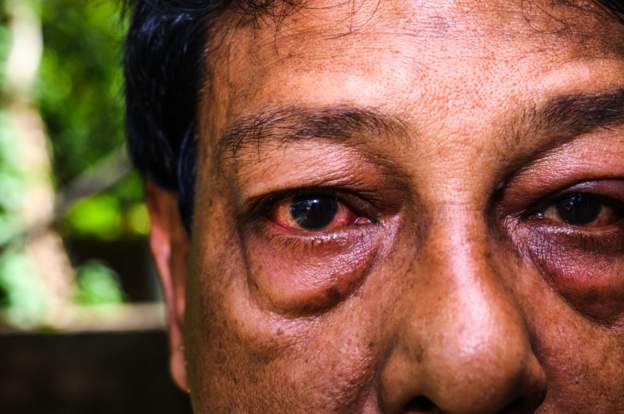Man Loses Eyesight After Using Urine to Treat Conjunctivitis

A man in Mozambique has lost his eyesight after attempting to treat his conjunctivitis with traditional medicine and urine. Babu Aiuba, the victim of this tragic incident, is currently undergoing treatment at the Central Hospital of Quelimane.
Mr. Aiuba recounted his ordeal to local reporters, revealing that he had contracted haemorrhagic conjunctivitis earlier this month. In an attempt to alleviate his symptoms, he resorted to washing his eyes with a concoction of soap and urine, a practice he believed to be common among his neighbors.
However, instead of experiencing relief, Mr. Aiuba’s condition worsened, ultimately leading to the loss of his sight. Ophthalmologist Eugénia Cavele, who is overseeing his treatment, emphasized that the use of such traditional remedies exacerbated the bacterial infection, causing it to progress rapidly and irreversibly to blindness.
Expressing concern over the incident, Mr. Cavele issued a cautionary statement urging individuals not to resort to unscientifically proven substances or self-medication, emphasizing the potential consequences such actions may entail, including irreversible vision impairment.
This unfortunate case marks the first instance of blindness resulting from traditional treatment amid the haemorrhagic conjunctivitis outbreak in Mozambique. The situation has escalated to affect nearly all provinces in the country, with even the capital, Maputo, reporting cases.
In a related development, authorities have reported outbreaks of conjunctivitis within the Maputo Provincial Penitentiary Establishment, with approximately 270 inmates currently infected. This underscores the contagious nature of the condition and the challenges in containing its spread within confined spaces.
Beyond Mozambique, several other countries in East and Southern Africa have also grappled with outbreaks of conjunctivitis, further emphasizing the importance of implementing effective preventive measures and promoting awareness about safe and evidence-based treatment options.




